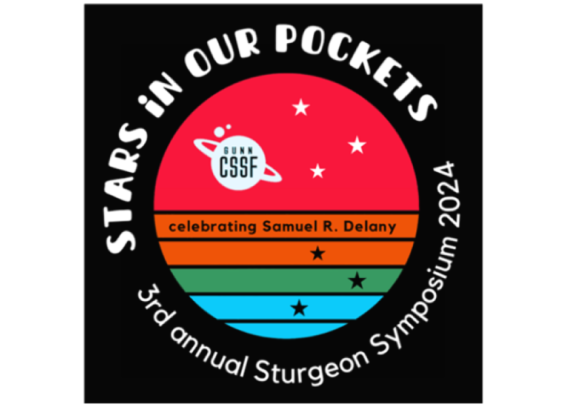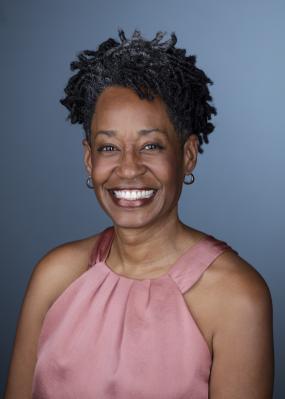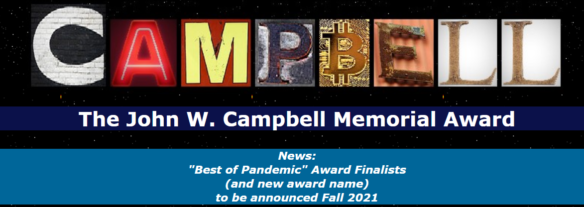The creation of Ad Astra Center for Science Fiction and the Speculative Imagination led by former Gunn Center director Chris McKitterick, a new part of the Achievement & Assessment Institute (AAI) at the University of Kansas, raises the question of what will become of the Gunn Center, its annual conference, and the Sturgeon and Campbell Awards presented there.
The Gunn Center for the Study of Science Fiction (CSSF) was founded by James Gunn in 1982. Gunn (1923-2020), a SFWA Grandmaster, was superseded by McKitterick as Director of the CSSF in 2010.
Giselle Anatol, a University of Kansas English Professor, and Interim Director of Graduate Studies, is the incoming Director of the Gunn Center for the Study of Science Fiction. She responded to File 770’s questions with this update:
Thank you so much for reaching out to me about the Gunn Center for the Study of Science Fiction. I am excited to take the helm, continuing many of the rich programs for which the Center is known, as well as developing new opportunities for creating and thinking about speculative fiction.
We would love to keep the Sturgeon Award at the Gunn Center, and are currently negotiating the terms with the Foundation. We are also still working out the management of the Campbell Award. The annual Campbell Conference was initially put on hold due to the pandemic, but since the leadership transition at the CSSF is occurring in the middle of the academic year, it might be too late for all administrative tasks to be accomplished for a summer gathering. Chris McKitterick has stated, however, that he plans to host and lead all types of workshops at the Ad Astra Center.
Kij Johnson, Associate Director of CSSF, also commented:
The Gunn Center remains in control of the Conference and the Campbell Award, and it will be up to them to decide what comes next. The Sturgeon Award was hosted by the Gunn Center but is under the control of the Sturgeon Literary Trust, and it will be up to that organization to do what they feel is best for the award.
Jason Baltazar, a Graduate Teaching Assistant in the University of Kansas Department of English, served as the Sturgeon Award Administrator this year, sending out press releases about the 2021 finalists and winner. The award has continued to be presented annually without interruption, although due to COVID-19 pandemic, the in-person ceremony has been postponed until a date to be announced.
However, the John W. Campbell Memorial Award for Best Science Fiction Novel has not been given since 2019. Jeannette Ng’s acceptance speech at Dublin 2019 for a different award also named after the late editor, in which she called Campbell a fascist who exalted “the ambitions of imperialists and colonisers, settlers and industrialists”, stirred enough controversy that the award’s sponsors promptly renamed it the Astounding Award. And a week later, Chris McKitterick, then the CSSF Director, announced that the Gunn Center was changing the name of the annual Campbell Conference and was “discussing alternatives” for the Campbell Memorial Award.
The Gunn Center for the Study of Science Fiction acknowledges and condemns the problematic words and actions of John W. Campbell.
We had already been discussing changing the name of the Campbell Conference to the Gunn Center Conference, which is in any case more accurate, as we’ve added other awards and events during to be presented there; recent events expedite that decision. We’ve already begun changing the name on our website and in promotional materials.
As for the John W. Campbell Memorial Award for best science-fiction novel of the year, the Center directors and Award jurors are currently discussing alternatives; when a decision is made, we will announce it.
Earlier this year on McKitterick’s web domain (christopher-mckitterick.com) a statement was posted that the “Best of Pandemic” finalists and a new name for the Campbell Award were “to be announced [in] Fall 2021.”
However, since that time there has been no news about the award, which has not been given again since Ng’s speech. Its fate and its relationship with CSSF will be one of many things on the incoming Director’s agenda.




